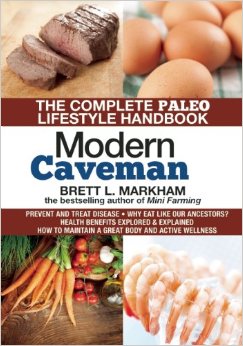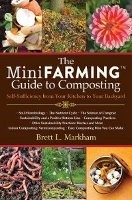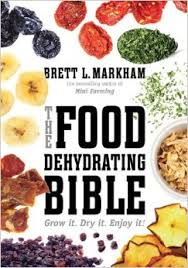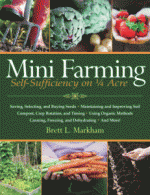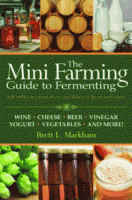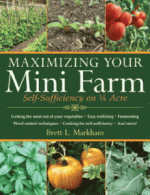There are two economies in the United States.
No, I’m not about the get political and talk about rich and poor, nor am I going to discuss the underground economy or black market. That is because all of the foregoing are part of the exchange economy where the only thing that is measured or assigned value pertains to production for exchange.
In fact, every economic number reported by the Bureau of Labor Statistics, the Federal Reserve or any other governmental entity measures production for exchange (PFE) exclusively. Because all of our media focus is on PFE, and that’s all that is discussed in economics classes, we often forget all about the other economy — an economy that can create maximum value for an individual.
That other economy, is Production for Use (PFU). In fact, the extreme emphasis on the PFE economy often results not merely in the de-emphasis of the PFU economy, but even outright hostility and a sort of pretentious “looking down one’s nose” at those who actively participate in PFU.
As an example, look at the parent who stays at home with his or her kids. That parent’s contribution to the economy is not measured or considered, because all that is measured is production for exchange.
I remember reading somewhere that if the tasks a stay at home parent performed were compensated, the job would be paid in the top 1% or top 2% of all wage earners. This fact recognizes something important, something that pertains to your self-sufficiency, and I want to convey it in mathematical terms using some examples.
I play guitar among other things. I own two tube amplifiers, both of which I built myself. Comparable units would cost $1,000-$2,000 each, but my cost was $350 plus a few nights of missed TV infomercials. Since I enjoyed building the amplifiers more than watching infomercials anyway, my net economic gain from that exercise was $1000+$2000-$350 or $2650. In reality, I never would have spent $3,000 on amplifiers, as I would have considered such an expense unconscionable. So through Production for Use, I effectively created a lifestyle commensurate with an income where spending $3,000 on amplifiers for a hobby would have been a negligible expense.
According to the PFE economy, since I wasn’t watching TV to stimulate my desire for junk food, I didn’t sell the amplifiers to someone else and I didn’t go down to a music store and buy them, all I did was buy $350 worth of parts and throw them in the garbage while wasting my time. But in the reality of my household, those amplifiers raised my standard of living just as effectively as if I had gotten a $4,000 (minus $1,000 in taxes) bonus from my employer. I invested 16 hours in building them. That works out to the equivalent of earning $250/hr. Where I come from, $250/hr is a pretty decent wage and the fact I get that boost to my standard of living without having to report it on my tax return is a bonus.
In other PFU will increase your standard of living just as certainly as getting a big raise.
My father taught me this. Obviously, he didn’t use the same words I am using, but when he had me outside helping him fix cars, build chicken coops or add a heating system to the house, he was doing some really important things. First, he was instilling a sense of confidence that regular people can in fact do things for themselves without need of an expert. Second, he was showing me that doing things for myself should create a sense of pride rather than a sense of shame. Third, he was showing me how to increase my standard of living far beyond my actual income without debt. Finally, he was showing me how to productively use the finite time of my life for the benefit of those around me.
So what does this have to do with MiniFarming? Quite a lot.
I want you to think for a moment about the qualities of food produced by MiniFarming. That food is rich in micronutrients that are depleted in ordinary food, thus being more healthy. It is organic, which many studies show to be more healthful as well. It is better tasting. It is more fresh, retaining more vitamins. If you were to go down to a store and buy it … what would it cost?
Well, for one thing, it cannot be purchased at any ordinary store. Even in the organic section you are still getting food that has been shipped long distances (often from other countries!) and whose varieties have been selected for shipping qualities rather than taste. You are still getting food far less fresh than you get in your back yard. As expensive as organic produce may be, it still isn’t comparable to what you grow yourself using MiniFarming methods.
The only way you can have that quality of food without growing it yourself is to employ a gardener. And, in fact, that is precisely what many of the super wealthy do on their estates that are set far back from the road. People in houses you can see, no matter how large, aren’t usually seriously wealthy. The truly wealthy folks live in houses you cannot see. But if you were to see them, you’d find that they often have gardens tended by a staff.
In the case of a MiniFarm, you are both the Lord/Lady of the Manor AND the staff, but the quality of the food you obtain this way is such that it is only otherwise available to the most wealthy people in the country. In effect, it increases your standard of living dramatically. Organic food in China, incidentally, is grown behind security fences surrounded by armed guards and is provided only to the highest party officials and foreign dignitaries. You get to have it for little more than a bit of effort.
This same idea applies to making your own wine, cheese, beer, vinegar and so forth. Just try the Monadnock Ale recipe in my book on fermenting, or make some wine from fresh apples growing in your yard and you’ll see what I mean: you cannot buy food that good at any price.
In my book on fermenting I explain how to do solera aging — which is something you can apply to both vinegars and fortified wines. Properly solera aged vinegar goes for $30/ounce. No, that isn’t a typo. Only the super-wealthy can afford solera aged vinegar, but once you set up your own solera method, YOU can have it any time you like.
Maybe that won’t show up in the GDP report because it isn’t Production for Exchange, but it will definitely show up on your plate and palate, and it will be divine.
Filed under: Self-Sufficiency


